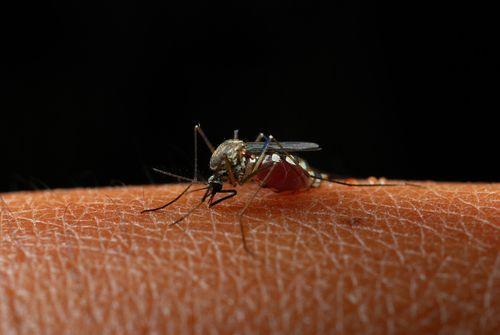Mosquitoes Bring Chikungunya To America, As 3 Long Islanders Diagnosed With Tropical Infection

A painfully debilitating, tropical disease spread by mosquitoes has been diagnosed in three patients at a Long Island Hospital, which gives Americans another reason to fear a mosquito’s bite. Officials at North Shore University Hospital in Manhasset acquired the virus while traveling in the Caribbean, where the tropical disease is widespread.
The disease they carry is known as chikungunya, a young and newly discovered virus that is rarely fatal but causes fever, severe joint pain and swelling, muscle aches, headaches, and notable facial rashes. Health officials confirmed the first case in the United States last Thursday, the same day Puerto Rico declared chikungunya an epidemic. There is currently no cure, so patients are monitored and given pain medications to treat the symptoms. The joint pain is oftentimes debilitating and lasts for a few days to weeks, and some joint pain may persist for several months to years, according to the World Health Organization.
"The arrival of chikungunya virus, first in the tropical Americas and now in the United States, underscores the risks posed by this and other exotic pathogens," said Roger Nasci, a scientist at the Centers for Disease Control and Prevention (CDC). The disease wasn’t even recognized for a year before it made its way to Florida in the United States, and it wasn’t through a traveler. This means the mosquitoes are here in the U.S. and although it’s only transmitted from mosquito to person, if an infected person is bitten by another mosquito the spread could quickly become a problem.
The infected Florida residents were a 41-year-old woman in Miami-Dade County who began showing symptoms as early as June 10, along with a 50-year-old man from Palm Beach County, who began experiencing symptoms July 1.
Health officials are urging U.S. residents to prevent mosquito bites to the best of their ability by wearing long pants and sleeves, wearing repellants, staying indoors when possible, and making sure still waters are emptied so mosquitoes cannot bread. But according to ABC News, officials reassure there is no cause for alarm.
"There is no broad risk to the health of the general public," said Dr. Celeste Philip, a public health official with the Department of Health.
The CDC said they aren’t sure what route the chikungunya virus will take now that it has been detected in the U.S. They warn citizens not to travel to places where the virus is prevalent such as the Caribbean, Puerto Rico, South America, Africa, and Asia. In the past, the disease remained well contained in Asia and Africa, but when it arrived in the Caribbean in December, it infected almost 250,000 people and began spreading like wildfire.



























